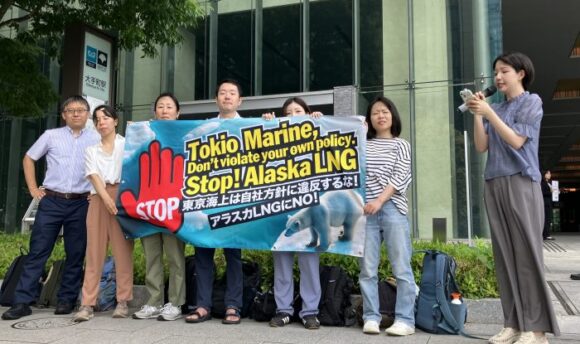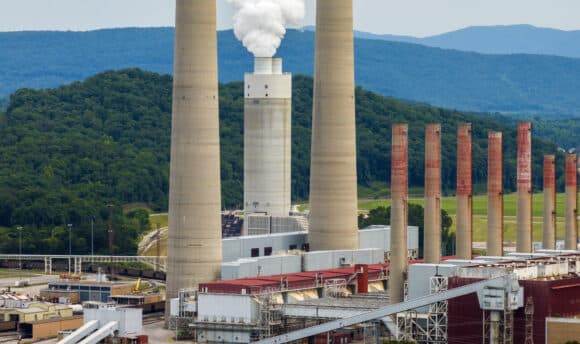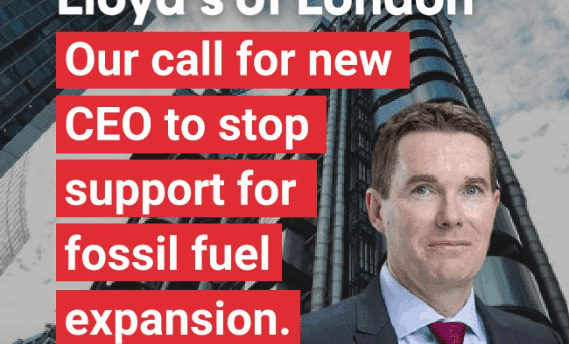Motion increases pressure on CEOs meeting in city to divest and withdraw insurance
The Paris city council is calling on the world’s biggest insurance companies to end support for the coal industry, citing its impact on climate change and the pollution that causes 23,000 premature deaths across Europe every year.
The latest action follows the city’s decision in 2015 to divest from fossil fuels and sectors contributing to climate change. This February it announced that it was considering the feasibility of suing fossil fuel companies for climate damages. Mayor Anne Hidalgo said: “In the last 18 months Paris has lived through two major floods, one in June 2016 when the Seine rose more than six metres, … and also four heat waves. So yes, we are really experiencing global warming.”
Insurance CEOs will gather for the annual General Assembly of industry think tank the Geneva Association, from May 30thto June 2nd, in the city where world leaders signed the Paris Agreement, committing to keep global warming “well below” 2 degrees Celsius. Climate change is increasing the frequency of natural disasters, which cost the world $330 billion last year leaving insurers with record losses of $144 billion.
It passed a motion last night directed at CEOs of the world’s largest insurance and reinsurance companies, ahead of their annual meeting in the city later this month, which will increase pressure on them to divest from coal and stop insuring coal projects.
A growing number of insurers are starting to abandon coal. It is the single biggest source of CO2 emissions and coal pollution can cause strokes, heart and lung disease and lung cancer. Sixteen major insurers have now announced plans to divest an estimated €18 billion in equities and bonds. Some have gone further and announced restrictions on insuring coal projects.
"Paris symbolises the world’s commitment to prevent dangerous climate change and insurers should be in the front line of the battle. Those who pay lip service to climate targets but continue to support coal are betraying their customers, their investors and the millions whose lives have already been devastated by global warming. The city council is showing them what support for the Paris Agreement means.”
The motion, tabled by five green councillors, notes that coal is the most polluting industry in the world and contributes to accelerating climate change. It is responsible for nearly 23,000 premature deaths in Europe and the Polish coal industry alone is responsible for nearly 6,000 of these.
It also notes that although OECD countries must phase out coal by 2030 in order to keep global warming below 2 degrees Celsius, the coal industry plans to open new mines and to build 15GW of new coal power in Europe, including 9GW in Poland.
“Major European insurance and reinsurance companies such as Allianz, SCOR and Generali massively support, insure and invest in the coal industry in Poland,” the motion states.
“The City of Paris invites the insurance and reinsurance companies, gathered in Paris for the meeting of the Geneva Association at the end of May, to commit to opposing air pollution and to withdraw their support from projects and companies in the coal sector, notably in the European Union and more particularly in Poland.”
It adds that the council “encourages the insurance companies with which it holds contracts not to invest in coal sector companies, but to increase their investments in the renewable energy sector.”
NGOs backing the Insure Our Future campaign published a briefing in February, which named European insurers investing in companies planning new mines and power plants and providing insurance cover without which they could not be built. Dirty Business: Insurance companies supporting the growth of Polish coal revealed that insurers have signed at least 21 contracts underwriting existing operations and new developments since 2013 and invested more than €1.3 billion in Polish coal companies.
Insurance companies are uniquely placed to support the transition away from coal. By ceasing to underwrite and invest in coal projects, they can improve public health, increase life expectancy for thousands of people, and support international climate targets and the fight against dangerous global warming.



